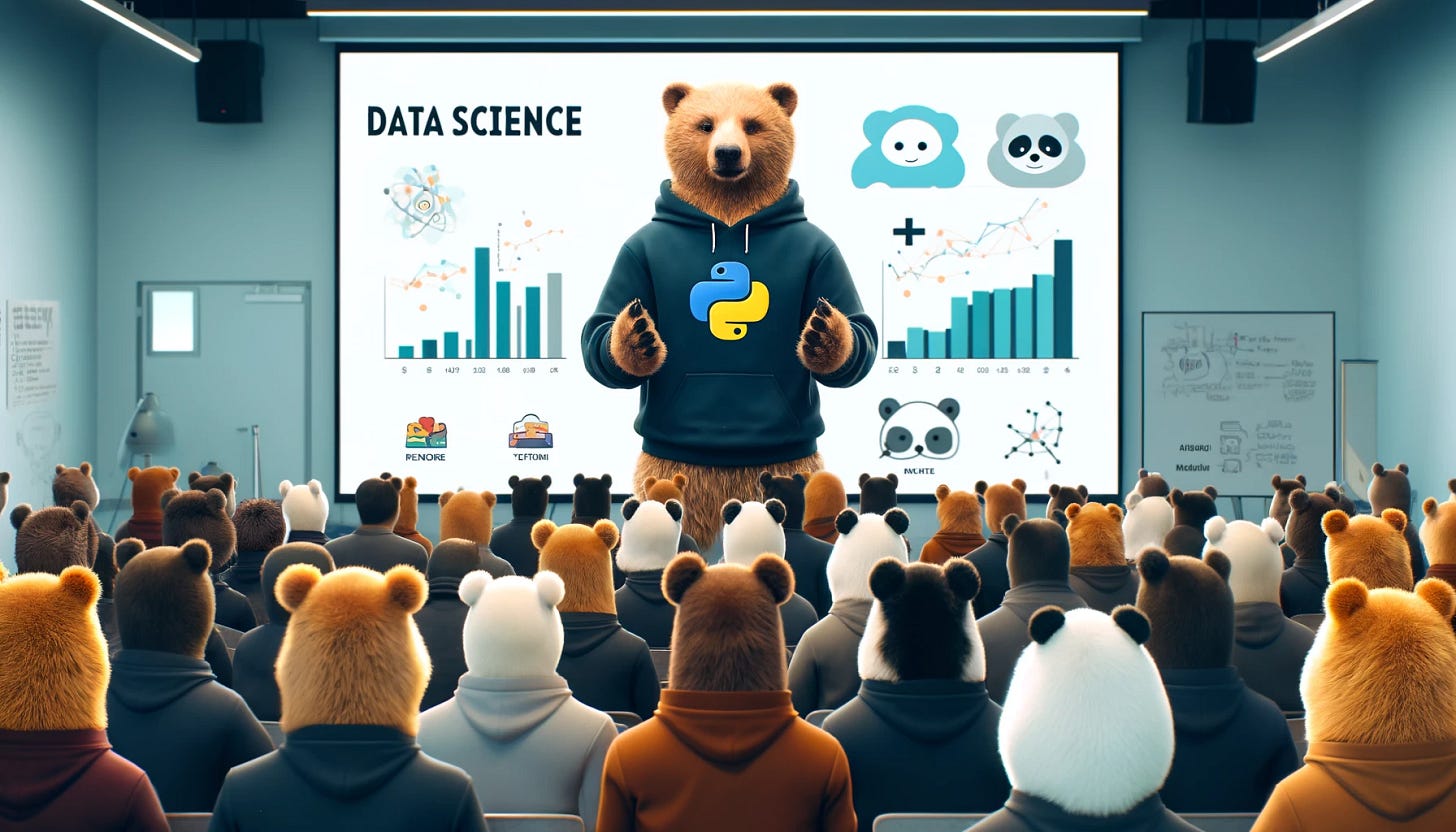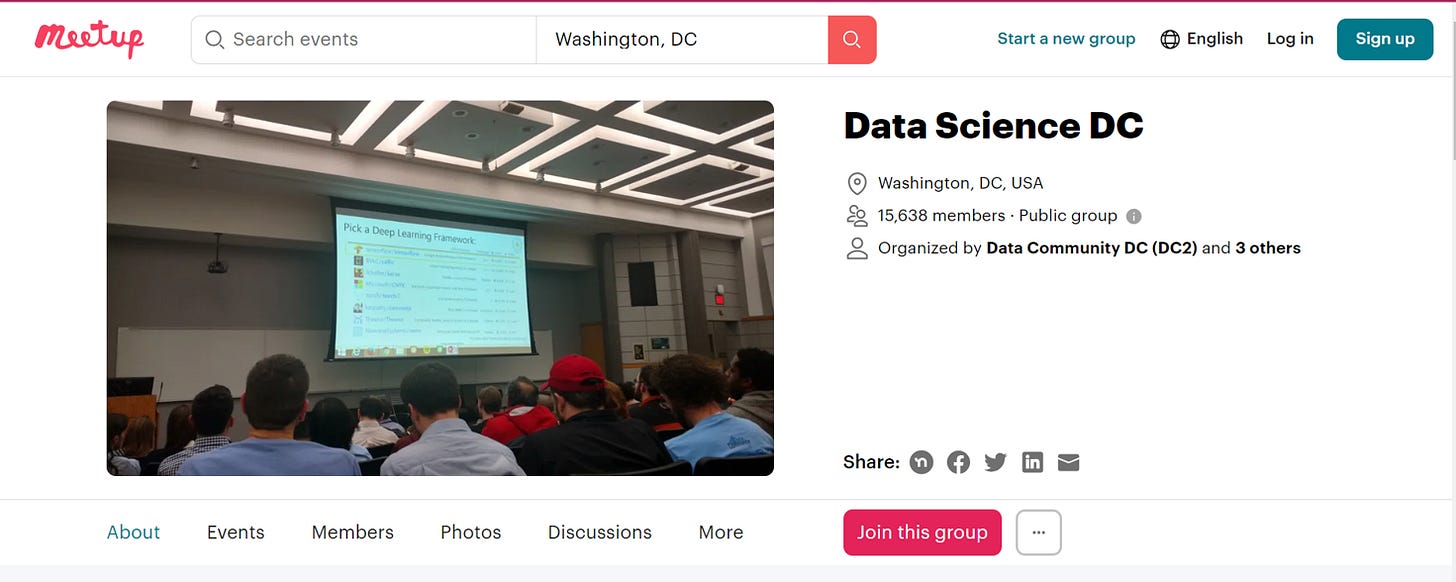Networking For Junior Analysts and Data Scientists
If you're a junior data analyst or data scientist looking to network more effectively, this is for you.
I'm writing this because I'm getting more generic messages from junior folks I don't know asking for things like professional references or help getting data jobs at my employer, even when we don't have any of those roles posted.
The data science job market is tougher now than when I was starting out, so I understand the impulse to reach out to as many people as possible. But I think there are more effective ways for you to network, so I'm going to suggest a few.
What Makes for Effective Networking?
Effective networking involves talking to people who both can help you and want to help you, either now or in the future. Sending form letters to strangers asking for referrals meets neither of these criteria! First, you’re spamming people. Second, they couldn’t give you a referral even if they wanted to, because they’re not familiar with your work.
By contrast, if you have an actual shared professional interest or background with someone, and what you’re looking for is more realistic — and I’ll talk more about that below — it’s more likely that they’ll be plugged into organizations or opportunities that could be useful to you. And you also might potentially also be useful to them, by the way! No matter how new you are to the field, you might know something they don’t, they might be looking for someone with your skills and interests, or you might be a future colleague of theirs who they’ll be glad to have met now.
Networking Strategies
Here are some ways I recommend connecting with other technical folks:
Attend Local Events: By going to events in your area, you ensure you have at least one thing in common with the other attendees - you all live in the same place. Also, other attendees will generally be happy to talk to you, and by being in that space, you can learn a lot about what's happening in your field. Conferences can also be valuable. However, local groups are mostly free to attend and allow you to build ongoing relationships with people in your community*. For example, if you live in the Washington D.C. area, I recommend checking out Data Science DC.
Create Your Own Projects: Develop and show off your skills by building things or writing things. You can share them on LinkedIn, and you can also reach out to local groups to volunteer to speak. Creating your own projects allows you to demonstrate your abilities in a concrete way, including in areas like adherence to technical best practices or engagement with the wider field. But also, being passionate and interested enough to build something cool is, in itself, cool.
Contribute to Open-Source Projects: Contributing to open-source projects is also a great way to demonstrate your interests and abilities, and it brings you in contact with other data scientists and developers who are happy you helped out on their project.
Engage Meaningfully on LinkedIn: Find content that genuinely resonates with you and engage with it. Make thoughtful comments. Post things you’re working on and talk about them. Being active on LinkedIn is optional. But if you hesitate because it feels awkward or self-promotional, there are ways to engage that don't feel that way.
Be Realistic About Outcomes
With all of these approaches, there’s a range of likely outcomes. Here are some examples of things I've done, either giving or receiving or both, with someone I met in this type of context:
Given general career advice
Forwarded a resume to a recruiter
Made introductions to people who are hiring
Provided resume or code feedback
Recommended them as a speaker
But all of these are somewhat more roundabout than trying to get someone hired at the organization where I work. Which I've rarely even been in a position that I could do.
Also, recognize that everyone has specific areas of expertise. I'm most helpful if you want to do data science for the federal government or associated contractors. If you're in another domain, there's a different person who's more likely to be helpful. At meetups, you can ask around to find people with your shared interest. Online, you’ll have more luck if you do the work to find the people it makes sense for you to be talking with.
Conclusion
There are people in your technical community — whether local to you or virtual — who want to meet you! They want to hear about your job search, the work you’re doing, or if you’ve benefitted from work they’ve done. And even if you’re not job searching now, by being in those spaces, you can learn about what’s happening in your field and get involved in ways that may help you later.
___________________________________________________
*This isn’t local, but I also recommend the weekly Posit data science hangout. Introduce yourself in chat! Post your LinkedIn and say who you are and where you are! Converse!


